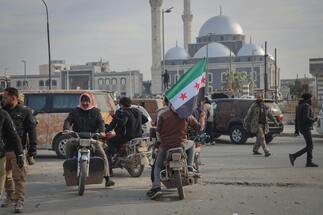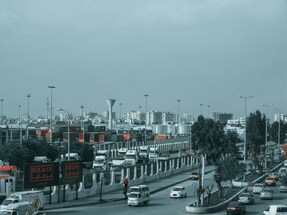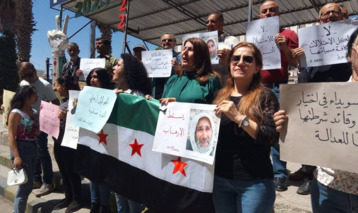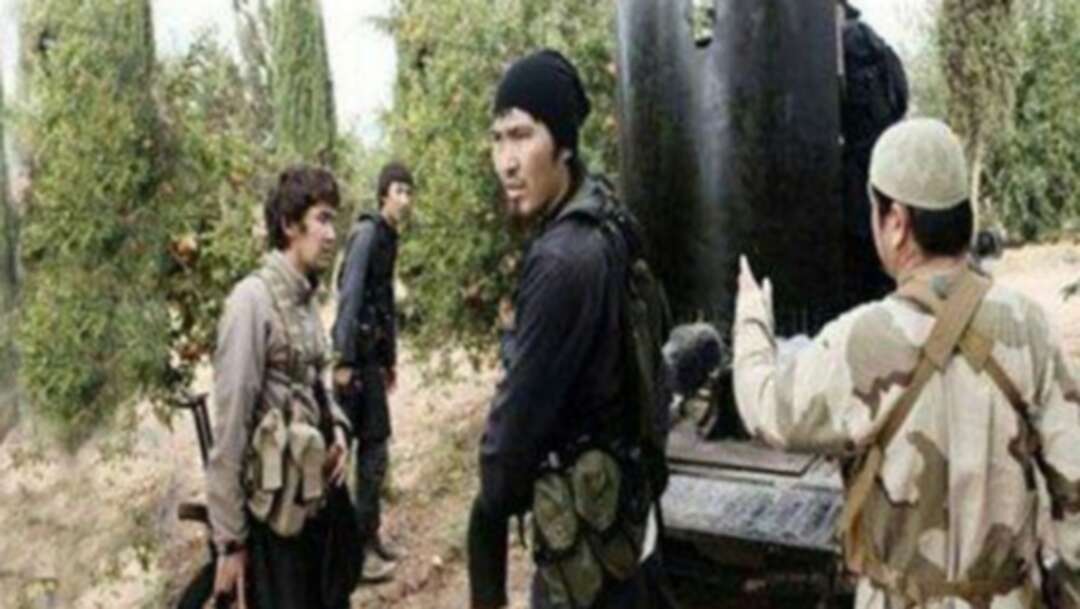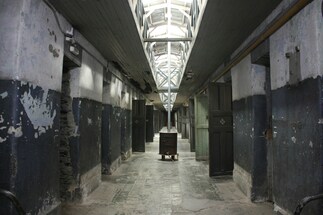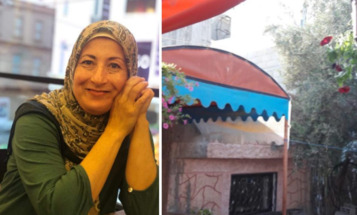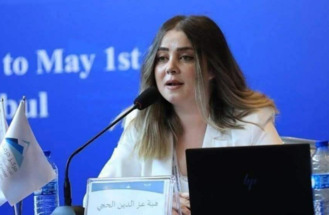-
How Lebanon’s political leaders have responded to the protests
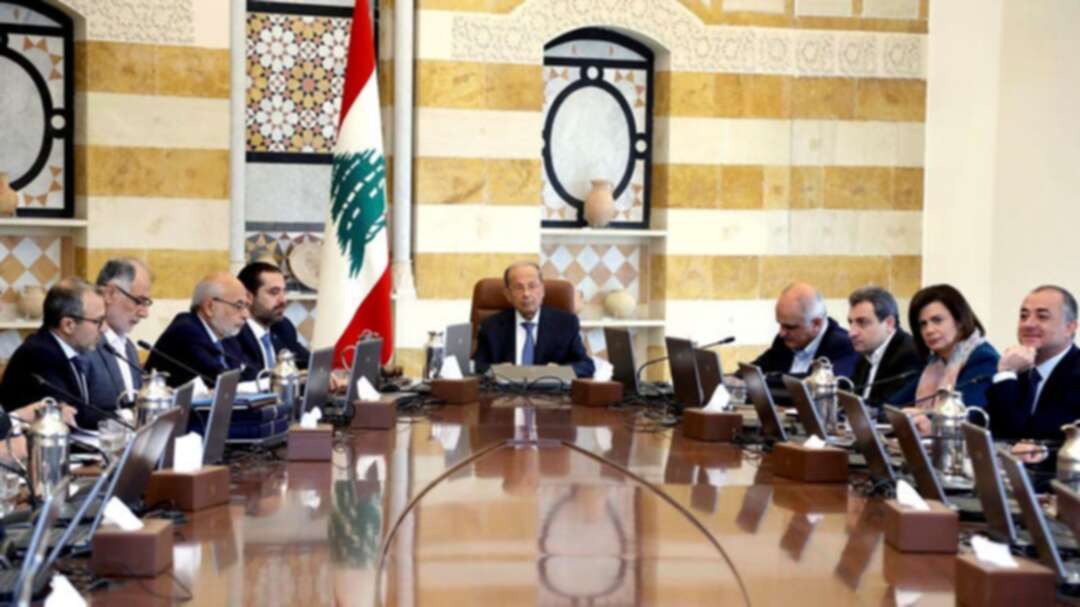
After ten days of protests which have crippled Lebanon, the embattled ruling class is being forced into new and uncomfortable accommodations.
While many government ministers have voiced their support for the right to protest, albeit providing few real concessions to the protesters and remaining deeply unpopular, the leaders of Hezbollah and Amal have taken a harsher tone.
Cabinet resignations
As protests entered their second weekend, the only political party to resign from government has been the Lebanese Forces (LF), led by Samir Geagea, whose four ministers resigned on October 19. Despite serving in government, Geagea has often positioned the LF as an “opposition” force and is opposed to the involvement of Hezbollah in cabinet.
Geagea has called for the resignation of Lebanese Prime Minister Saad Hariri’s government and the creation of a new “shock government,” adding on Monday that “an independent government seems to be the only solution to the current crisis.” He also said that protests against the Iranian-backed Hezbollah shows that its leader Hassan Nasrallah is “misreading the street” in his continued support for the government.
Religious leaders including the Maronite Patriarch have also expressed their support for protesters, though many have fallen short of demanding a full revolution.
Aoun, Bassil, Hariri, Jumblatt
Most of the other government leaders refuse to budge. From President Michel Aoun and Foreign Minister Gebran Bassil to Prime Minister Saad Hariri and veteran Druze politician Walid Jumblatt, their central message has been to claim that protesters have been heard, and that the government will respond.
However, they have tabled concessions that have done little to appease to the streets, with protesters continuing to call for the resignation of the entire government.
Addressing the nation Thursday night, President Aoun refused to resign, hailed reforms, and said he was open to dialogue with protesters. In the streets and online, his performance was mocked as unconvincing, with protesters highlighting that the video speech was pre-recorded. The president appeared to rubber stamp the need for reforms and mooted a cabinet reshuffle. Beyond that though, there was little willingness of what was needed, or how to go about it.
Bassil, Aoun’s son-in-law and the leader of his political party the Free Patriotic Movement (FPM), has taken a similar tone, attacking corruption but defending the current government. Anti-Bassil songs continue to be chanted by the protesters.
Prime Minister Hariri’s initial reaction was to give the government a 72-hour deadline to pass reforms. Once the timeline lapsed, he announced a reform package which included cutting the salaries of ministers and a tax on banks. Demonstrators paid little attention to his reforms, while experts criticized them as unfeasible.
Walid Jumblatt, leader of the Progressive Socialist Party, a former Hariri ally, and the most prominent politician from the Druze community, said he is against the resignation of the government and voiced his support for a cabinet reshuffle. While he continues to back the government, like Hariri he has voiced his support for the protesters’ safety and security.
Although the government has ordered the Lebanese army to clear road blocks on several key high ways, it has not ordered any crack down on protesters. As a result, there has been little violence since the first two days of protests, with the army pledging to protect protesters against any outside attacks.
Nasrallah, Berri
While echoing the rhetoric around reform, Hezbollah’s Nasrallah and Amal’s Berri have taken a notably harsher tone when it comes to the right to demonstrate.
“You want to protest, you need money. How is this protest being funded? Please explain to us how? You ask for transparency, then give it to us. Are you getting paid by certain embassies?” Nasrallah told protesters in a speech on Friday.
This stance has received a mixed response from his supporters. A small Hezbollah rally formed in the southern town of Nabatieh on Friday, but others were less convinced.
“He talks of outside funds, what outside funds? The cookies we are receiving from other fellow protesters, or the water bottles being given away for free? Do not dismiss us. We are part of this country,” said one onlooker.
On Friday, Nasrallah’s anti-protester rhetoric became action as Hezbollah supporters attacked protesters in central Beirut and Nabatieh.
The leader of the Shia Amal party, which is aligned with Hezbollah despite competing for votes, has taken a similar approach to Nasrallah. As the speaker of parliament, Berri is a central figure in the existing government and also has a big stake in its survival.
Having initially praised some protesters, he reiterated his support for the government. “The country cannot bear remaining suspended and we fear a vacuum and nothing else,” Manar cited Berri as telling MPs in his parliamentary bloc at their regular Wednesday meeting.
His supporters have also reportedly attacked protesters. During the initial outbreak of the protests in the southern city of Sour, protesters were reportedly attacked by men loyal to Amal. Amal flags were also seen alongside Hezbollah flags when a convoy of men on motorbikes tried to break through to protesters earlier in the week.
Despite Hezbollah and Amal’s attempt to intimidate protesters, demonstrations have remained largely cross-sectarian and continue to be active in areas traditionally considered Amal or Hezbollah strongholds. Protesters across the country are still chanting, “Kullun yaani Kullun” – all of them means all of them.
source:Nadia al-Faour and Tommy Hilton
You May Also Like
Popular Posts
Caricature
BENEFIT Sponsors Gulf Uni...
- April 17, 2025
BENEFIT, the Kingdom’s innovator and leading company in Fintech and electronic financial transactions service, has announced its sponsorship of the “Innovation and Sustainable Technology Solutions Competition (GU - IST Solutions), hosted by Gulf University at its main campus.
This strategic sponsorship reflects BENEFIT’s active role in advancing technological innovation and fostering sustainable solutions to future challenges. It also seeks to empower Bahraini youth by enhancing their skills, capabilities, and competitiveness in innovation and solution development—contributing meaningfully to the broader goals of sustainable development across all sectors.
As part of BENEFIT’s active involvement in the competition, the company has announced that Hanan Abdulla Hasan, Senior Manager of Public Relations and Communication, will serve on the competition’s supervisory committee. Her upcoming participation reflects BENEFIT’s forward-looking commitment to championing academic and professional excellence.
Commenting on the occasion, Hanan Abdulla Hasan, Senior Manager of Public Relations and Communication at BENEFIT, said, “We are privileged to support this pioneering initiative, which aligns seamlessly with BENEFIT’s enduring commitment to fostering innovation and nurturing the potential of Bahrain’s youth. Our participation is rooted in a deep sense of social responsibility and a firm belief in the pivotal role of innovation in shaping a sustainable future. Through such platforms, we seek to empower the next generation with the knowledge, skills, and foresight required to develop impactful solutions that address future challenges, in line with the United Nations Sustainable Development Goals 2030.”
Dr. Aseel Al Ayash Dean of the College of Engineering in Gulf University commented, “We extend our sincere gratitude to BENEFIT for their generous sponsorship and support of the Innovation and Sustainable Technology Solutions Competition. This contribution plays an instrumental role in helping us achieve the strategic goals of this initiative, namely, cultivating a culture of innovation and sustainability, encouraging efforts that address the imperatives of sustainable development, and enhancing the practical and professional capabilities of our students and participants.”
The event will bring together a diverse spectrum of participants, including secondary school students, university undergraduates, engineers, industry professionals, entrepreneurs, academic researchers, and subject matter experts representing a wide range of disciplines.
The competition seeks to inspire participants to develop and present innovative, sustainable technologies aimed at addressing pressing environmental, social, and economic challenges. It encourages the formulation of business models that integrate advanced technological solutions with core principles of sustainability. Moreover, it serves as a platform for emerging leaders, entrepreneurs, and innovators to contribute to the advancement of the Sustainable Development Goals, promote the ethos of responsible technology, and demonstrate its transformative potential across various sectors.
Attendees will have the opportunity to view a series of project presentations submitted by participants, covering diverse areas such as eco-friendly product design, smart and sustainable innovations, renewable energy technologies, water conservation and management, waste minimisation and recycling, green architectural solutions, and sustainable transportation systems. Outstanding projects will be formally recognised and awarded at the conclusion of the event.
opinion
Report
ads
Newsletter
Subscribe to our mailing list to get the new updates!

